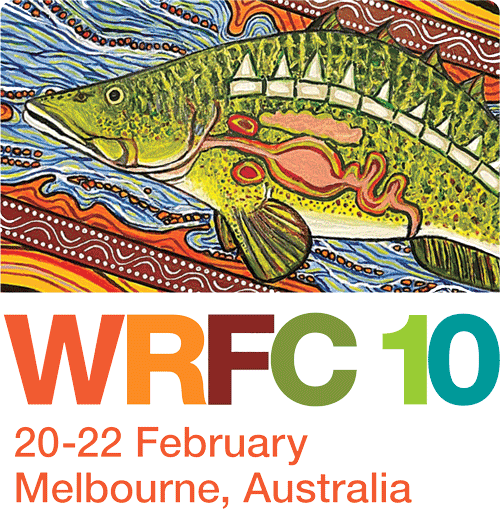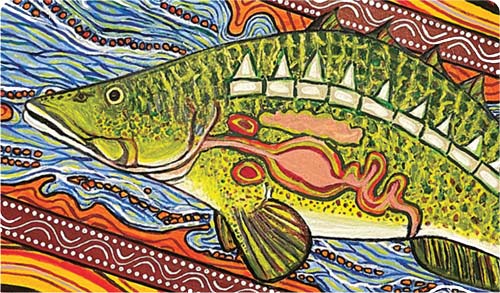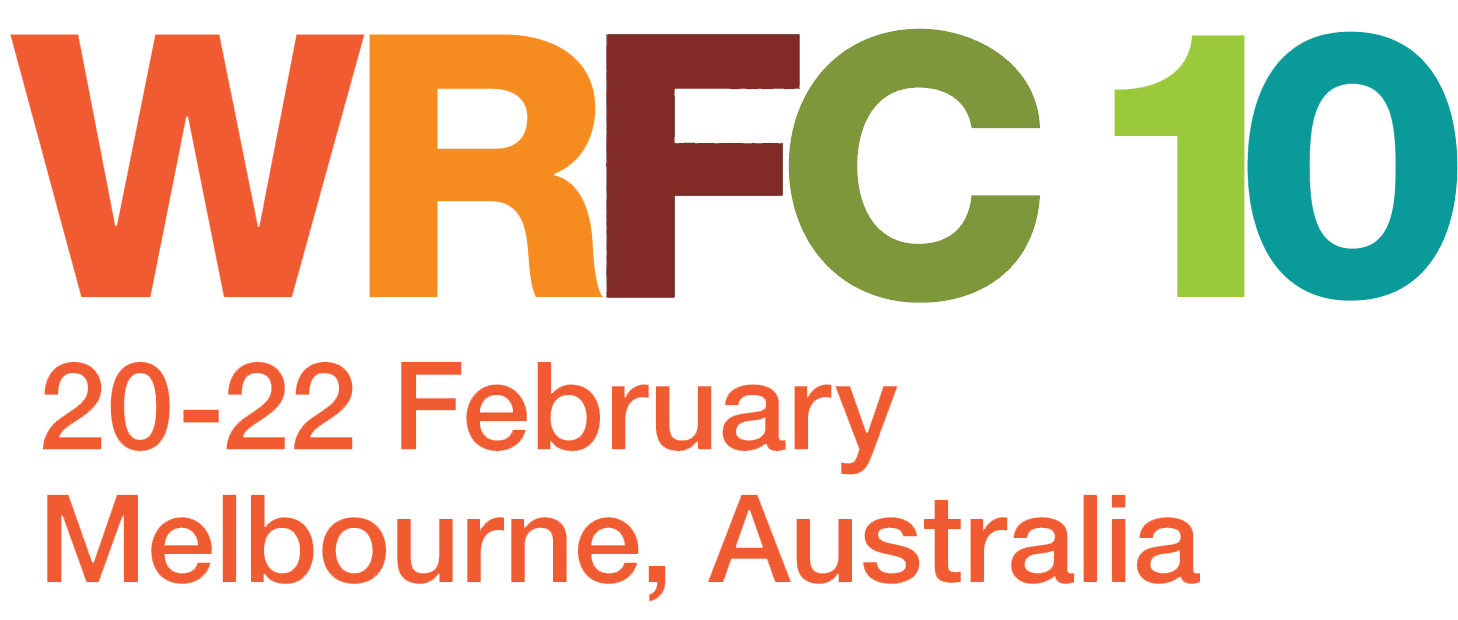Workshops & Special Sessions
The 10th World Recreational Fishing Conference will not only deliver an exciting program jam-packed with talks across a range of themes showcasing some of the world’s best fisheries research and science, management, communication, education and stewardship, there are also a range of workshops to participate in where you’ll have the chance to take a deeper dive into some of the key issues in fisheries, contributing to discussion with some of the best researchers, fisheries managers and recreational fishers from across the world and Australia.
Working together to engage anglers, address barotrauma and reduce discard mortality in recreational fisheries
Dr. James Reinhardt, Julia Goss, Nicholas Haddad, Sean Meehan
Time: Tuesday 21st February 2023, 10:30 – 12:00
Location: Special Session Room (Room G)
Conference delegates will be treated to a workshop being led by the team from Return ‘Em Right. This interactive, engaging and collaborative workshop will share valuable insights into educating anglers on best release practices and engage with participants to collectively share obstacles, challenges and resolve issues around adoption of best fishing and release practices.
Background: The Return ‘Em Right program was launched in 2021 to anglers in the Gulf of Mexico with the goal of increasing the survival of reef fish impacted by barotrauma. In its inaugural year, the program delivered gear and training to over 10,000 anglers and is now a leading effort to reduce discard mortality, or death after release. In the Gulf of Mexico, discard mortality leads to millions of fish dying every year, negatively impacting fisheries. This issue is not unique to the Gulf of Mexico, but a global phenomenon affecting both saltwater and freshwater recreational fisheries.
Workshop Plan: Return ‘Em Right staff have gained valuable insights to educate anglers on best release practices. The presenters will share challenges encountered on this issue and request participants to share their own obstacles regarding adoption of best release practices. Together the workshop participants will brainstorm ideas to resolve these issues, leveraging both Return ‘Em Right’s experience and those of all the workshop participants.
The 90-minute workshop will include the following:
- Barotrauma and Discard Mortality 101 – RER staff will provide an overview of barotrauma, its impact on fisheries, and tools to improve survival.
- Return ‘Em Right Overview – RER staff will explain the program’s tactics to engage anglers including successes, challenges, and tools for monitoring impact.
- Identifying challenges – Workshop participants will share challenges they face to reducing discard mortality in their respective fisheries.
- Brainstorming solutions – Workshop participants will split into groups to share successes and potential solutions to these challenges.
- Presentation of solutions – Team lead for each group will present solutions to the workshop participants, followed by a discussion.
Workshop outcome: Participants understand the tactics, strategies, and messaging needed to engage their angling communities regarding discard mortality and can identify solutions to existing challenges they experience.
About the workshop organisers:
Dr James Reinhardt works at the NOAA Restoration Center and helps to design, develop, and implement restoration projects for the Deepwater Horizon oil spill.
Julia Goss works at the NOAA Restoration Center and is the project manager for Return ‘Em Right.
Nicholas Haddad is the Sustainable Fisheries Communications Manager for Florida Sea Grant and Return ‘Em Right.
Sean Meehan is the Recreational Fisheries Coordinator at NOAA’s Southeast Regional Office and supports Return ‘Em Right’s outreach and communication efforts.
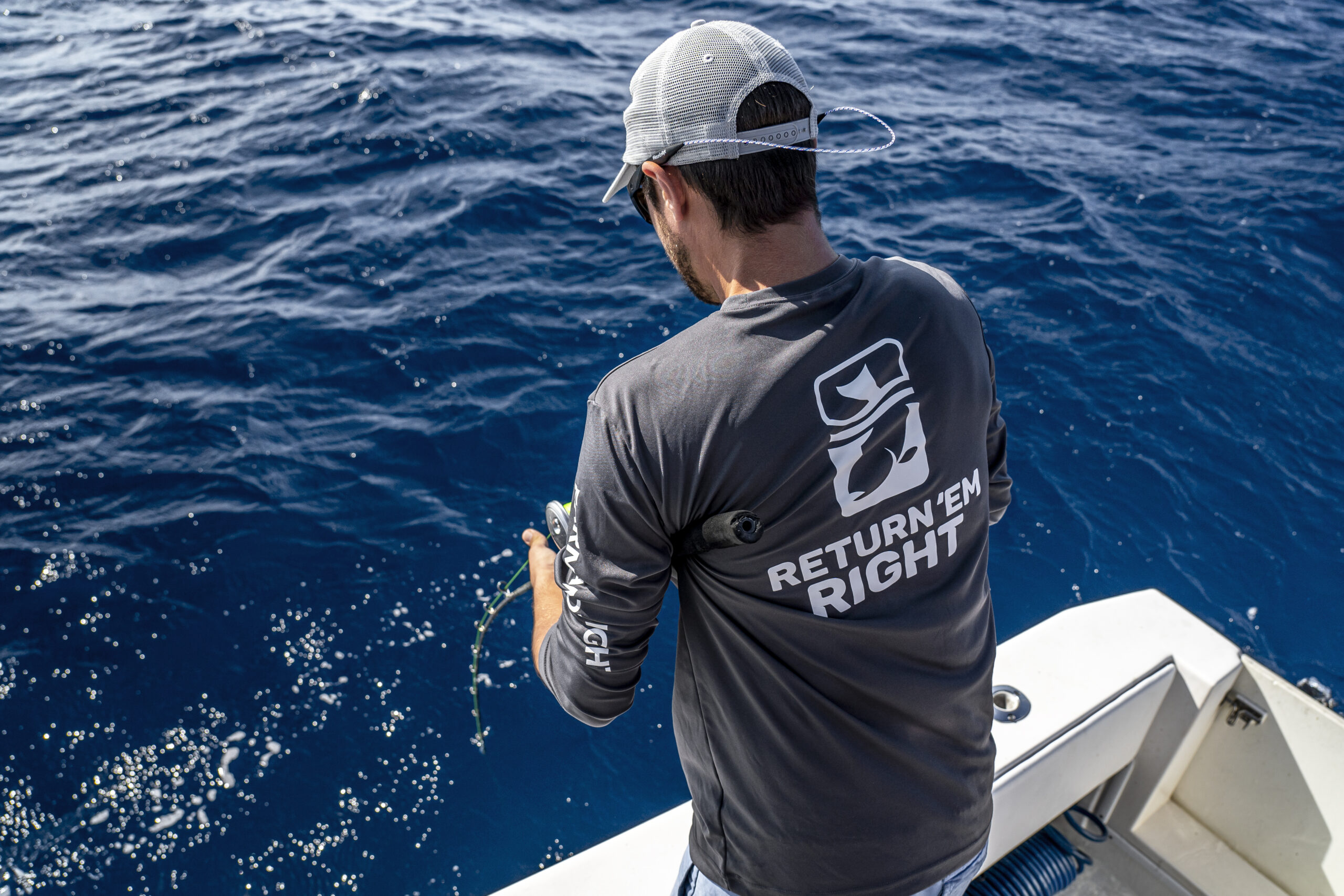
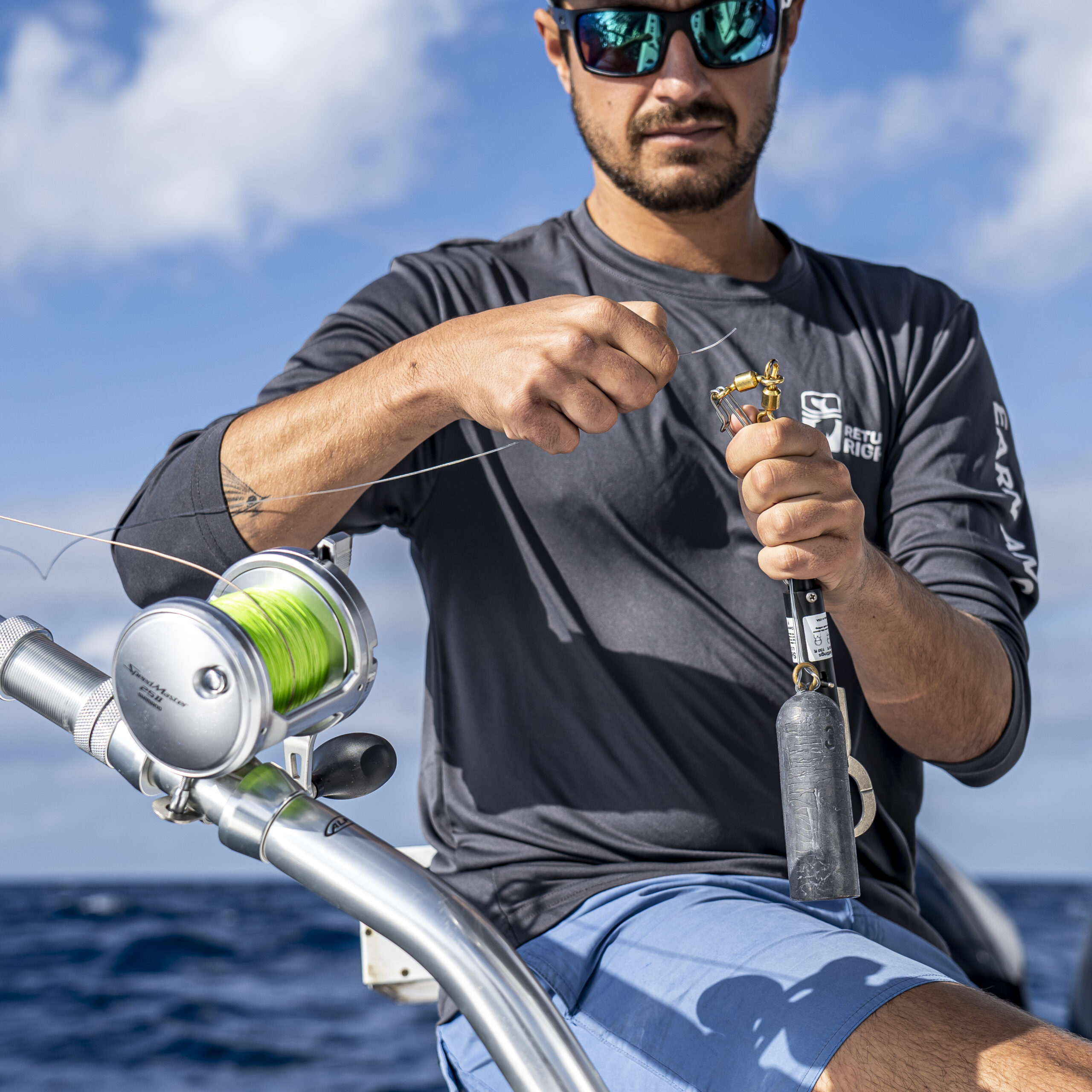
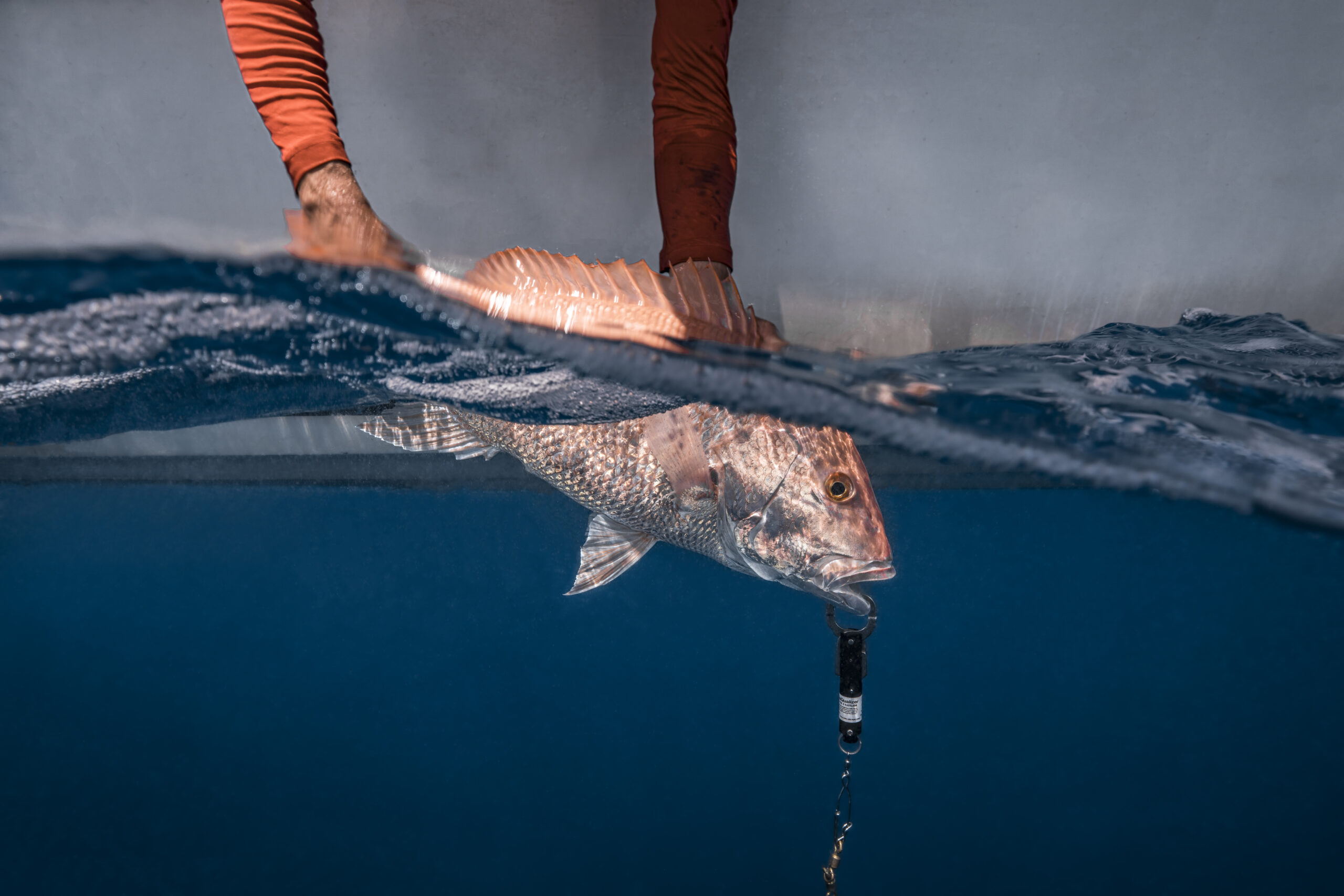
Tackling Litter: National Action Plan to address recreational fishing generated waste and ghost gear for Australia
Anissa Lawrance, Cassie Price
Time: Monday 20th February 2023, 14:50 – 16:00
Location: Special Session Room (Room G)
Background: TierraMar, through its Ghostnets Australia program and OzFish Unlimited have partnered to develop and implement a national plan of action addressing fishing related waste and ghost gear for the recreational sector.
Workshop plan: Through this 60 min co-designed workshop, the workshop organisers would like to engage recreational fishers interested in developing a national plan of action to tackle fishing related waste/ghost gear from recreational fishing across Australia. An outline of the project will be provided, followed by opportunity for participants to work together to identify key issues and priorities requiring action, as well as potential solutions and who needs to be involved for how to address priorities.
About the workshop organisers:
Cassie Price is OzFish’s national Director of Habitat Programs, she heads up our Habitat Project Team across Australia who are busy guiding recreational fisher effort in a broad range of fish habitat restoration and citizen science activities. Cassie is driven by a passion for sustainable resources, a love of fishing and her farming background.
Anissa Lawrence is the Managing Director of TierraMar and leads the GhostNets Australia program that works across Australia and beyond to find fit for purpose solutions to reduce the impact of fishing generated ghostgear and waste impacting on marine and freshwater ecosystems.
Inspiring angler stewardship for healthy rivers: Why water for the environment benefits recreational fishing
Sarina Loo
Time: Wednesday 22nd February 2023, 13:00 – 14:30
Location: Special Session Room (Room G)
Background: Productive fish populations need healthy rivers. Water for the environment (i.e., environmental flows) is a critical tool to improve the health of rivers that have been heavily modified to provide water for irrigation, industry, cities and towns. In Victoria, Australia, the Victorian Environmental Water Holder (VEWH) delivers collaborative management of water for the environment to improve the health of Victoria’s rivers and wetlands and to support the plants and animals that depend on them. A focus of the program is maintaining healthy populations of recreational fishing species at popular fishing locations, which in turn benefits anglers. Environmental flows support fish by directly providing habitat, connecting populations and promoting breeding and migration. However, there are significant barriers preventing the most effective use of water for the environment.
Environmental flow managers want to connect with anglers so the benefits of water for the environment are better understood, and encourage them to be active stewards for healthy rivers. In this workshop, a discussion on how to best engage anglers so that they are empowered and inspired to share and advocate widely across their networks for the barriers to effective use of water for the environment to be addressed will be undertaken. Attendees will be asked to share their insights and ideas so that environmental flow managers can learn from their experience.
Workshop plan: To facilitate a productive discussion, led by the VEWH and key recreational fishing stakeholders, around how to inspire anglers to be river stewards, in particular regarding water for the environment and its benefits for fish and fishing. The workshop will involve presentations by fishing stewards around their experiences as angler stewards and the importance of healthy rivers, followed by collaborative discussions on methods to get fishers engaged in stewarding healthy rivers.
Workshop outcome: Better knowledge of how to encourage anglers to be active stewards of healthy rivers. Participants will be able to receive a report on key lessons from the workshop if they wish.
About the workshop organiser:
Dr Sarina Loo is the Co-Chief Executive Officer of the Victorian Environmental Water Holder (VEWH). Prior to working at the VEWH, she was a senior public servant at the Department of Environment, Land, Water and Planning in Victoria for over 10 years. Her areas of expertise include environmental water management, policy and strategy development, investment, monitoring, evaluation, reporting and governance. Sarina has a PhD in freshwater ecology, has been a university lecturer of sustainability, an independent consultant and a past Board member of the Peter Cullen Trust. She has spent many family holidays recreational fishing on Lake Macquarie, NSW.
Incorporating habitat into recreational fisheries management
Aaron Adams & Craig Copeland
Time: Wednesday 22nd February 2023, 10:30 – 12:00
Location: Special Session Room (Room G)
Background:
The importance of habitat to sustainable fish populations has long been recognized (e.g., Beck et al. 2001), but this recognition has yet to result in many examples of habitat being incorporated into fisheries management, especially for coastal fisheries. Instead, resource management agencies tend to address habitat and fisheries management as separate categories. Given the large-scale historic losses and degradation of habitat and ongoing non-fishery related impacts to fish populations (e.g., water quality declines), it is clear that the standard stock assessment-based approach to fisheries management is inadequate.
This workshop will feature three short presentations to lay the foundation for an interactive discussion. The presentations will provide background on the fisheries management–habitat disconnect, and highlight case studies examining the relationships between recreational fisheries species and their habitats, ongoing efforts to incorporate habitat into recreational fisheries management, and examples of ongoing work that integrates habitat restoration and protection with fisheries management goals. The interactive discussion among workshop organizers and attendees that will focus on formulating concepts for integrating habitat and other non-fishery factors into fishery management.
Workshop plan: Opening speakers will lay the foundation, and include a number of case studies, including:
- Case study 1: Redfish and snook in Florida
- Case study 2: Snapper in Australia
- Case study 3: Salmon in Washington State
Following presentations, a number of key questions will be considered by participants, including:
- To what extent is habitat loss or gain key to the management of a given recreational fishery?
- How do we determine the amount of habitat change that will influence a fishery?
- How do we predict and measure habitat change thresholds?
- To what extent can we incorporate a terrestrial, habitat-based approach to fishery management?
- How much data do we need to achieve Actionable Knowledge for effective management of habitat and associated fisheries?
- How do we design a habitat-focused complementary approach to stock assessments?
- If you don’t have habitat in your fisheries legislation what does a relationship with an environmental agency need to look like to support fisheries?
- How do we integrate the information silos into a more cohesive approach?
- Silos:
- Habitat and water quality
- Stock assessment
- Fish life history
- Stakeholders
- Silos:
About the workshop organisers:
As Director of Science and Conservation for Bonefish & Tarpon Trust, Aaron is responsible for formulating, overseeing, and implementing BTT’s science and conservation plan, and applying scientific findings to conservation and management via interactions with resource management agencies and other non-governmental organizations. In addition to his scientific focus, he spends considerable effort translating fish science into angler’s terms via publications and presentations. Aaron has been an avid angler since the age of five, and quickly began asking the why and how of fish and their habitats. The career of fish conservation scientist is a perfect combination of these passions.
Craig is the CEO and founder of OzFish Unlimited. He has been leading the protection and restoration of fish habitat throughout Australia for over 30 years. He has led ground-breaking work in fish passage restoration, wetland rehabilitation, river resnagging as well as floodgate and acid sulphate soil management. He has been responsible for the advancement of recreational fishers undertaking river health projects around Australia, a Churchill Fellowship reviewing examples of best practice habitat management by recreational fishers around the world and the subsequent creation of OzFish Unlimited.
